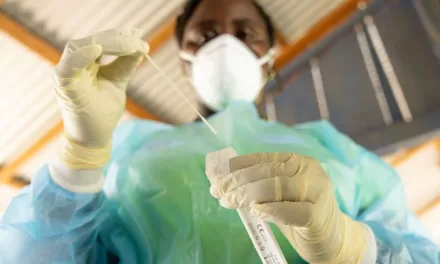
As we adapt to living with COVID-19, a deeper understanding of the range of infections, from asymptomatic to severe, is emerging. While many researchers and doctors initially attributed severe COVID cases to inflammation, recent research from Northwestern University and the University of Wisconsin suggests that bacterial pneumonia may be a significant contributor to severe COVID-related deaths. Interestingly, the study found that deceased COVID patients who were severely ill did not exhibit signs of inflammation. Instead, half of those requiring a ventilator had bacterial pneumonia as a secondary infection, ultimately succumbing to pneumonia rather than organ damage or failure from COVID.
Dr. Benjamin D. Singer, senior author of the study and a pulmonary and critical care specialist at Northwestern Medicine in Chicago, emphasized that critically ill patients who recovered from pneumonia had higher chances of survival.
However, it’s important to note that other researchers still acknowledge the presence of cytokine storms in COVID cases. These storms result from an overactive immune response, releasing harmful chemicals called cytokines. Excessive cytokines can lead to organ failure. In COVID-19, cytokines were initially thought to cause widespread inflammation, potentially leading to fatalities.
Further studies, such as one from CSIR-Institute of Microbial Technology in India, underscore the importance of managing this inflammatory response for effective COVID treatment. Italian researchers also affirm the role of hyperinflammation in severe COVID cases.
Recent research from New York University Grossman School of Medicine revealed that gut bacteria may enter the bloodstream of severe COVID patients, potentially exacerbating complications.
These findings have implications for all COVID-19 patients, especially those at high risk for complications. The Northwestern study emphasizes the urgency of screening susceptible patients for pneumonia promptly. Fortunately, early detection enables patients to discuss their risk factors with their healthcare providers and receive appropriate treatment to prevent severe illness.
Who Is at Risk for Severe COVID?
The CDC identifies the following groups at elevated risk for severe COVID:
- Unvaccinated individuals
- Those over age 50, particularly those over age 65
- Individuals with underlying medical conditions like asthma, diabetes, heart disease, HIV, kidney disease, liver disease, suppressed immune systems, and obesity
- Pregnant individuals
- Those who are physically inactive
- Smokers
What Symptoms of COVID Are Emergency Warning Signs?
According to the CDC, COVID symptoms can vary in severity, ranging from mild to severe. Common symptoms include fever, chills, cough, shortness of breath, fatigue, muscle and body aches, headache, loss of taste or smell, sore throat, congestion, runny nose, nausea, vomiting, and diarrhea.
Certain symptoms warrant immediate attention, including:
- Difficulty breathing
- Chest pain or pressure
- Confusion
- Trouble waking up or staying awake
- Pale, gray, or blue-colored skin, lips, or nail beds
Individuals experiencing these symptoms should call 911 promptly, explaining it as a confirmed or potential case of COVID.
How Is Severe COVID Treated?
For patients who test positive and have risk factors, their doctor may prescribe one of three drugs to hinder the progression of the illness: molnupiravir, Paxlovid, or remdesivir. Hospitalized patients may receive additional drug therapy to reduce inflammation and blood plasma therapy. Additionally, any other infections present will be treated, underscoring the importance of promptly reporting new symptoms to healthcare providers.
What Can Be Done to Avoid Severe COVID-19?
Foremost, getting vaccinated and receiving booster shots is crucial in minimizing the likelihood of severe illness. Dr. Singer emphasizes that it’s exceedingly rare to encounter a fully vaccinated COVID patient in critical condition in the ICU.
Should a patient test positive and experience worsening respiratory symptoms, they should request a pneumonia screening from their doctor. Antibiotics are often necessary to address co-infections. Additionally, Dr. Jonas Schluter of NYU Grossman advises against consuming junk food while on antibiotics, emphasizing that excess sugar in combination with antibiotics can potentially worsen organ damage. In his words, COVID can ignite a fire in the body, and avoiding excessive sugar intake can help extinguish the flame.
Taking prescribed medication, isolating for at least 5 days, wearing a high-quality N95 or KN5 mask around others, and minimizing stress are vital steps for patients to maximize their chances of a milder outcome with COVID-19.











